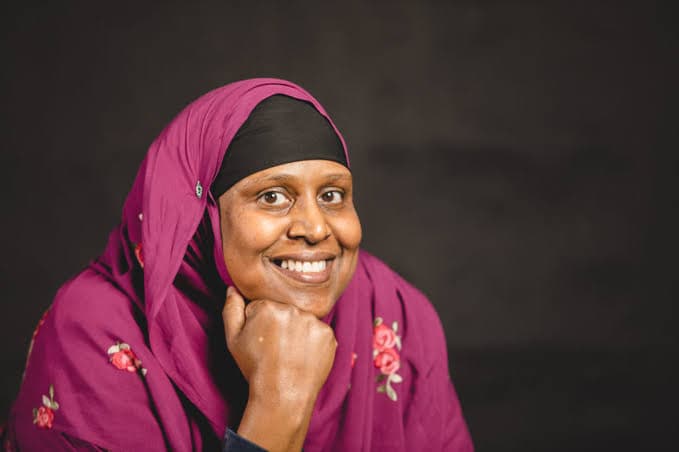While humanitarian need is escalating by the minute, humanitarian aid has not been able to measure up with the demand.
This disturbing reality is in contradiction to the flourishing of funds through donors; individuals foundations, companies and corporations, and grant-makers in the international world. Although it is not news that humanitarian aid is largely dependent on regular appeals to donors, both public and private, rather than a steady stream of income, more still beggars to be done to uplift the burden from local NGOs who although well renowned for their unquantifiable impact in the society, providing humanitarian, economic, and social assistance via safeguarding human rights, bearing the largest risks -Ebola virus, Covid-19, disaster and conflict zones, etc, have over the past years ironically been placed at the unfavorable end of the spectrum, sidelined and receiving the smallest share in funding, with less than 2% of humanitarian funding compared to international agencies.
Boldly taking a stance and calling for change is internationally renowned Somalian-born activist, Degan Ali, executive director of Kenyan-based NGO, Adeso Africa – an African humanitarian and development organization changing the way people think about and deliver aid, thereby promoting a more inclusive humanitarian action program.
Degan is an internationally-renowned humanitarian global leader and organizational development consultant with over 20 years of experience. She is a trailblazer in the movement for the empowerment of Southern NGOs, influencing policy, and powering community development. She successfully pioneered cash transfers as a significant, legitimate method of delivering aid to vulnerable populations, as well as designed and oversaw the delivery of the first large-scale cash aid distribution program in Africa implemented by an NGO rather than a government agency during the 2011 Somalia famine.
She is also founder of the Network for Empowered Aid Response (NEAR): the first global south civil society network advocating for the transformation of humanitarian and development aid architecture.
Her work has been featured in The New York Times, Al Jazeera, and The Guardian.
Her desire and outspokenness have established her as an activist, persistently calling for radical revolutionary change, the right to be recognized, and a stop to racism in the humanitarian sector.
Applaudably Adeso Africa driven by the unfair and imbalanced humanitarian and development system has leveraged the experiences to push for building a better, more equitable aid system. It has over 30 years lent support to Somalians through reaching the vulnerable, regional programs.
Adeso’s path towards a transformed aid system started in 2014 when it commissioned a study about creating a network of global south civil society organizations, leading to the establishment of NEAR in 2016. During the 2016 World Humanitarian Summit (WHS), Adeso organized local civil society organizations to have clear and consistent advocacy messages, becoming a leading voice of what was later called the “localization movement”.
Since then, it has actively engaged with the #ShiftThePower Movement, which similarly aims to transform the philanthropy and development space.
Ali explains being a local aid worker trying to function in the international system. “It is humiliating to beg and plead to attend a meeting about your own country and people. You have to try and understand the jargon in a room full of white people – who say they know what is best for you. You are like a beggar standing outside, asking and pleading to get through the door.”
Born in Somalia to a diplomat father and a social activist mother, she moved to the US when she was nine, there she had her high school and university education. Over the years, Ali cut her teeth as a social activist on the notorious south side of Chicago, but her desire to return home to Africa was close to her heart so when the offer of a job with the UN came, she returned to Somalia, but by then her mother had set up Adeso, then a small organization.
But even way back, the narrative was still the same for local NGOs, explaining her shock, Degan Ali says:
“I saw my mother doing great work, but it was the most humiliating and depressing thing to watch her fundraise, to try and bang on the doors of the donor establishment, because she came from a local NGO,” says Ali.
“I left the US thinking I was going to leave behind a system of institutionalised racism. Unfortunately, I found a different form of institutionalised racism in the humanitarian system.”
According to her, she was able to find out what Adeso needed – a voice who spoke the language of the humanitarian establishment. “I knew the western language and I knew what they wanted and what she was lacking, so I chose to leave the UN, to help Adeso put in everything the western donors respect.”
While change is yet to occur, Ali over the last few years, had urged local organizations to stop trying to reform existing NGO networks and instead form their own, its paid off and Adeso has been organizing a consultation process involving over 100 organizations, from over 30 countries, resulting in a proposal for an entirely new Global Network
While many applaud Ali for her fearlessness, many organizations aren’t willing to give thumbs up as they fear the consequences of speaking out will rub off on international NGOs who offer support of funding.
She is a Rockefeller Foundation Global Fellow for Social Innovation, a contributor to the Overseas Development Institute/Humanitarian Policy Group and the Global Food Security Journal.



